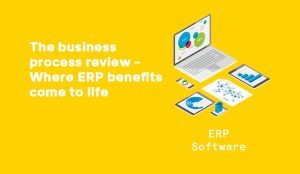When ERP development experts claim that their solution is “end-to-end,” they refer to a collection of pre-configured procedures that span many functional domains. This connects various departments for smooth data flow and communication.
Today, we’ll look at how these ERP Software Services solutions function and the commercial benefits they give.
If a system is end-to-end, it has a few aspects in common:
- They cover the complete value chain from start to finish.
- They place a premium on client satisfaction.
- They’re divided into groups depending on their assessed worth.
- They deal with things from the outside in.
Manually integrating these processes, as you may expect, takes a lot of time and work. This is where an ERP platform might come in handy.
How to Approach End-to-End Process Development?
Are you prepared to incorporate your organization’s end-to-end mechanisms? Although every ERP Consulting firm is distinct, several approaches can assist you in effectively navigating this transition.
Let’s have a look at some of the most crucial actions to take:
-
Prioritize by Business Value
Instead of going all-in, start by concentrating on the procedures that add the most incredible value to your company. Which of these are closely related to your strategic goals? Create a plan that makes the endeavor simpler to manage and accomplish by ranking them according to their intricacy and possible effect.
-
Connect Processes to Key Benefits
We propose building a benefits realization strategy to guarantee you’re on the right track. This plan should clearly explain the outcomes you anticipate from your end-to-end initiatives. You’ll also need an ERP project plan that lays out the measures you’ll take to accomplish those outcomes.
-
Get Inspiration From Others
Another method to make the road to end-to-end process optimization easier is to get ideas from people who have done comparable work. You might inquire about the names of top technology suppliers, research organizations, and other organizations that have effectively established end-to-end processes. While the techniques of other organizations may not wholly line with yours, you may use them as a model for your project scope.
-
Implement a Change Management Strategy
Implementing adjustments to ERP Business Processes impacts the workers who rely on it for their day-to-day job. As a result, converting procedures into integrated, end-to-end workflows may cause some trepidation at first. You may reduce resistance by creating an ERP change management plan. You may guarantee that your staff is adequately prepared before the changes are implemented by defining a strategy, communicating effectively, and soliciting input.
-
Create an ERP Center of Excellence
It’s critical to ensure that your new ERP Software remains aligned with your ever-changing company demands and requirements after going live with it. An ERP Center of Excellence (COE) can help with this. This project can assist you in identifying operational issues, areas of resistance, new training requirements, and more. Finally, you may optimize your end-to-end business processes to guarantee that they are constantly assisting you in achieving your objectives.
Optimizing Your ERP System for End-to-End Processes Functionality!
Corporate executives are no longer compelled to utilize diverse and incompatible methods to piece together a business plan. End-to-end ERP systems enable employees to collaborate to meet corporate objectives, enhance performance, and retain the customer’s contentment.
Are you curious about how an ERP deployment might help you enhance the efficiency of your processes? Please contact our ERP consulting team straight away at Connected IT Consulting for an immediate quotation!
Get in touch here!
Related Links
ERP Project Management
Business Process mapping
Small Business ERP
ERP Consulting



